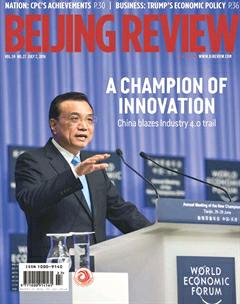Understanding China Through Keywords
2016-07-27
Understanding China Through Keywords
Learning keywords is one of the best ways to keep abreast of the latest developments in a country. The China Academy of Translation, a research institute affiliated with the China International Publishing Group, the country’s leading international publisher, regularly analyzes prevailing Chinese terms in various sectors and translates them into a number of foreign languages ranging from English to Arabic. In each issue, Beijing Review presents a selection of these keywords to help readers know more about China.
The core values of Chinese socialism
In November 2012, the 18th Communist Party of China (CPC) National Congress called for efforts to foster the core values of the pursuit of prosperity, democracy, civility, harmony, freedom, equality, justice, rule of law, patriotism, dedication, integrity and goodwill. These values define the goals, purposes and norms of the state, society and individual citizens and reflect the true meaning of Chinese socialism and what we cherish and promote in contemporary China.
Ecological red lines
Ecological red lines, also known as “ecological conservation red lines,” refer to space boundaries and environmental management limits that must be strictly observed in ecological conservation services, environmental quality and safety controls, and natural resource utilization in order to ensure national and regional ecological safety, sustainable economic and social development, and people’s health.
These lines are essential for securing China’s ecological safety and must not be crossed. Otherwise, the country’s ecological safety, people’s working and living conditions, and sustainable development will all be endangered.
The Chinese Government is conducting research to delineate the red lines and provide institutional guarantees so as to offer the best possible protection for a healthy environment. Once the mechanism of red lines is in place, it must be implemented throughout the country without fail.
The decisive role of the market in resource allocation
The market should play a decisive role in resource allocation, according to a decision by the 18th CPC Central Committee at its Third Plenary Session in November 2013. A general rule embraced by market economies, the preeminence of the market in allocating resources should also be a feature of our socialist market economy. To this end, efforts should include building a robust market and rolling back excessive government intervention, while also addressing insufficient government oversight in some areas, so as to promote the market’s role in maximizing effectiveness and efficiency in resource allocation.
This decision will guide the Party and the general public in developing a new, appropriate perspective for the relative roles of the government and the market. It will also help transform the growth model and government functions and rein in corruption and other forms of misconduct. While there is no doubt that the development of a socialist market economy entails contributions from both the market and the government, their specific functions are different. The performance of the government could be improved by sound macroeconomic regulation, a better macro-control system and full implementation of reasonably defined government functions, with optimized government organizational structures and strengthened public services. It is also crucial to ensure fair competition, enhance market oversight to maintain order, address market failures when the need arises to maintain macroeconomic stability, and promote sustainable development and prosperity for all.
